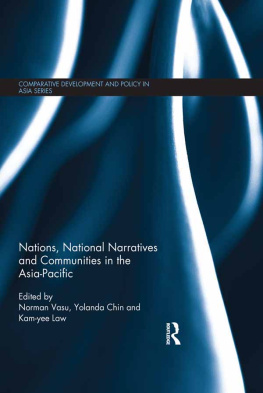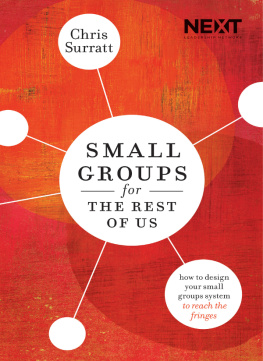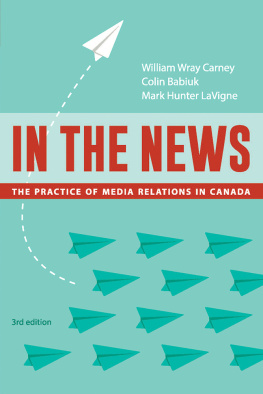TELL OUR STORY
TELL OUR STORY
MULTIPLYING VOICES IN THE NEWS MEDIA
JULIE REID AND DALE T. MCKINLEY
Published in South Africa by:
Wits University Press
1 Jan Smuts Avenue
Johannesburg 2001
www.witspress.co.za
Copyright Julie Reid and Dale T. McKinley 2020
Published edition Wits University Press 2020
First published 2020
http://dx.doi.org.10.18772/22020055775
978-1-77614-577-5 (Paperback)
978-1-77614-581-2 (Hardback)
978-1-77614-578-2 (Web PDF)
978-1-77614-579-9 (EPUB)
978-1-77614-580-5 (Mobi)
All rights reserved. No part of this publication may be reproduced, stored in a retrieval system, or transmitted in any form or by any means, electronic, mechanical, photocopying, recording or otherwise, without the written permission of the publisher, except in accordance with the provisions of the Copyright Act, Act 98 of 1978.
Project manager: Catherine Damerell
Copyeditor: Sally Hines
Proofreader: Alison Lockhart
Indexer: Tessa Botha
Cover design: Hybrid Creative
Typeset in 10 point Minion Pro
CONTENTS
| Julie Reid |
| Julie Reid and Dale T. McKinley |
| Dale T. McKinley |
| Dale T. McKinley |
| Dale T. McKinley |
| Dale T. McKinley |
| Dale T. McKinley |
| Julie Reid |
| Julie Reid |
| Julie Reid |
LIST OF FIGURES
ACKNOWLEDGEMENTS
W e are grateful to the Open Society Foundation of South Africa, and the Women in Research Fund, awarded by the University of South Africa (UNISA), for providing the funding that made the research for this book possible.
This research was conducted under the auspices of the Media Policy and Democracy Project (MPDP). We are additionally grateful for the guidance and advice provided by fellow MPDP researchers, in particular the project leaders, Professor Jane Duncan (University of Johannesburg) and Professor Viola Milton (UNISA), who were extremely helpful in fundraising for this project.
Our thanks extend to Taryn Isaacs De Vega (Rhodes University) for assisting us with the media content analysis, which is reported on in this book, and to Dr Vanessa Malila (Rhodes University) who transcribed the in-depth interviews.
But most especially, our sincere thanks is extended to the courageous and determined activists and residents of Glebelands, Thembelihle and Xolobeni/Amadiba, who warmly welcomed us into their communities, fully supported and actively participated in this project, and without whom this book would not have been possible.
This book is dedicated to them.
ABBREVIATIONS AND ACRONYMS
| ACC | Amadiba Crisis Committee |
| ANC | African National Congress |
| ANN7 | African News Network 7 |
| BCCSA | Broadcasting Complaints Commission of South Africa |
| COPE | Congress of the People |
| CSO | civil society organisation |
| EWN | Eyewitness News |
| GHCVV | Glebelands Hostel Community Violence Victims |
| IFP | Inkatha Freedom Party |
| MPDP | Media Policy and Democracy Project |
| MRC | Mineral Resource Commodities |
| PCSA | Press Council of South Africa |
| SABC | South African Broadcasting Corporation |
| SANRAL | South African National Roads Agency Limited |
| SAPS | South African Police Service |
| TCC | Thembelihle Crisis Committee |
| UK | United Kingdom |
| UNESCO | United Nations Educational, Scientific and Cultural Organization |
UNISA
XOLCO | University of South Africa
Xolobeni Empowerment Company |
CHAPTER
The Importance of Voice and the Myth of the Voiceless
Julie Reid
Voice as a process giving account of oneself and what affects ones life is an irreducible part of what it means to be human; effective voice (the effective opportunity to have ones voice heard and taken into account) is a human good.
Nick Couldry, Why Voice Matters
A s social animals, all human beings instinctively and naturally yearn to give an account of themselves and to tell their own stories. But, to operate as if certain peoples lack this desire or ability is to behave towards them as if they are not human (Couldry 2010). In recent years, philosophers and social scientists have pondered the notion of voice as a type of catch-all phrase that infers more than the literal meaning of the word, that is, the sounds and words one makes when speaking. Jim Macnamara (2012) conceptualises voice as more than the verbal act of speaking since it includes human communication of all types, such as voting, protesting, online participation and artistic production. More broadly, voice, or rather the ability to practise voice, relies on inclusion and participation in political, economic and social expression and processes, and involves affording people the space to actively contribute to decisions that affect their lives. Jo Tacchi (2008: 1) calls the denial of the right of peoples to participate in such activity, voice poverty.
Voice today is theoretically understood to encompass a broad spectrum of communicative activity, which includes: iterating ones view, story and position in the world; having that story or position listened to by others; having ones story recognised as something that matters; and, further, having it mediated or carried via a means of communication (such as the news media) to the broader collective or society. Admittedly, that is putting things rather simply because there are complex and multilayered problems and conditions relevant to each one of these steps. A number of writers examine the intricacies of this process, the notion of voice, its definition, its theorisation, its associated processes and, crucially, the characteristic challenges prevalent in the disablement of the effective practice of voice. Particularly notable among these is work done by Susan Bickford (1996), the research collective called the Listening Project (ODonnell, Lloyd and Dreher 2009) and Nick Couldry (2009, 2010). Bickford (1996) offers a landmark and detailed examination of voice and associated listening in her book, The Dissonance of Democracy: Listening, Conflict, and Citizenship, in which she explores pathbuilding communicative practices. Here, citizens engage with one anothers perspectives through an ongoing process of speaking and listening, though not necessarily with the goal of social coherence. Instead, the discord, which naturally arises during these interactions, encourages participants to re-evaluate their own speaking practices (Bickford 1996).
Charles Husband (1996, 2008) amplifies the ethical importance of listening by advocating the right to be understood as a fundamental communication right. Lisbeth Lipari (2010) proposes a paradigm shift that places listening at the centre of communication rather than speaking, and she defines a perspective on listening, which she calls listening being. While the largest body of literature emphasises the notion of listening as central to communication, Couldry (2009, 2010) focuses the critical lens on voice. We take particular direction from his explication of the various characteristics of voice. However, while he identifies a number of different levels of voice, we will mention only those that are relevant here in relation to how voice is either carried out or ignored by the dominant news media, and what the implications are for journalism.








